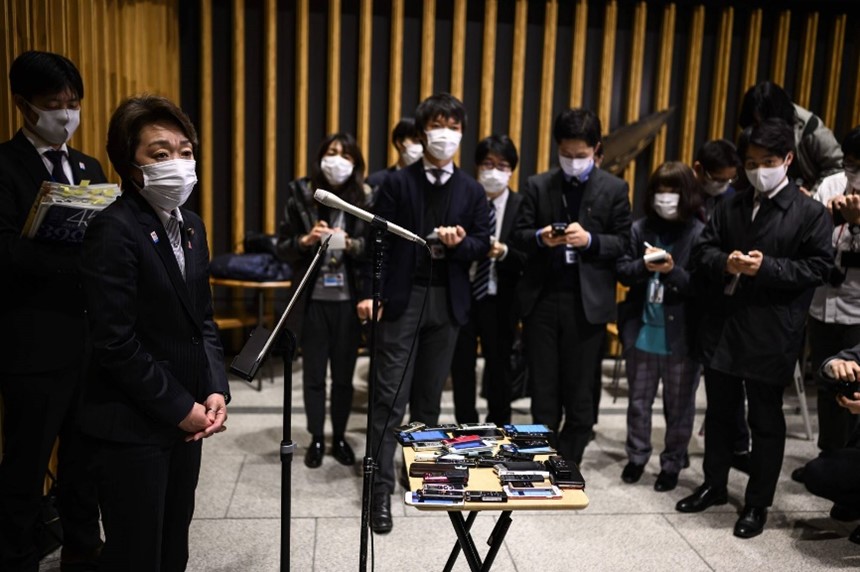
February 13, 2021
AFP-JIJI Feb 13, 2021
Japanese activists welcomed an abrupt about-face by Tokyo Olympics organizers over their choice for a successor to Yoshiro Mori but warned more radical reform is necessary.
Organizers had reportedly been set to appoint 84-year-old Saburo Kawabuchi to replace the 83-year-old Mori, who resigned after his claims that women talk too much in meetings sparked a groundswell of condemnation.
But reports on Friday said a committee would now launch a search for a successor, with Olympic minister Seiko Hashimoto — one of just two Cabinet ministers — named as a possible candidate.
Campaigners gave a cautious welcome to the U-turn, but warned only a complete shake-up would bring about real change.
“It does show that they’re listening to our voices and they’re aware of what we’re saying,” said Kazuna Yamamoto, the founder of gender equality campaign group Voice Up Japan.
“But it really depends on what happens tomorrow and the days after. … It depends on who they choose and also how they choose them.”
Media reported that Mori had hand-picked Kawabuchi as his successor and was set to continue to serve in an advisory capacity.
“It’s important that the organizing committee or the government explain to the people why they have chosen whoever they choose as his successor,” said Keiko Kojima, an essayist and commentator on gender issues in Japan.
“If they just appoint someone without explaining why, people won’t accept it in the current situation.”
Kazuko Fukuda, a campaigner for women’s sexual and reproductive rights, said the way Kawabuchi appeared to have been chosen was typical of a culture in Japan where “women are not involved in decision-making.”
“Important things don’t get decided during the day in official meetings, they get decided after work at night,” she said.
“Decisions should be made in official places during the daytime, but instead they’re just approved. If women raise their voice there, they’re labelled troublesome and noisy.”
“That culture is one barrier that stops women from advancing.”
Mori comments sparked outcry in Japan, where a petition calling for his resignation attracted more than 110,000 signatures in just two days. Sponsors, athletes and politicians lined up to lambast the former prime minister.
The International Olympic Committee said it considered the matter closed after Mori apologized, but eventually called his comments “completely inappropriate” as criticism mounted.
Campaigners have been heartened by the grassroots response in Japan, which ranked 121st out of 153 nations surveyed in the World Economic Forum’s 2020 global gender gap report.
But they say there is still much work to be done — pointing to the fact that there are just seven women among the Tokyo 2020 Organising Committee’s 35 board members.
“You can’t just say that things have changed because he’s resigned,” Fukuda said.
“If they don’t have concrete plans, like having a zero-tolerance policy … and increasing the number of female board members, I don’t think there will be any real change.”
Pride House Tokyo — a community hub for LGBTQ people officially recognized as part of the Olympic program — published an open letter this week calling for organizers to take concrete steps to prevent discriminatory comments from happening again.
Project chief Gon Matsunaka believes Olympic organizers must look beyond replacing Mori and undertake genuine reform.
“It’s easy to say Mori should quit, but if that happens, that’s the end of it,” he said.
“Nothing will change. That’s why we published an open letter — because we want to see action being taken.”
Male-dominated culture is so “deeply rooted” in Japan that those close to Mori “thought there was nothing wrong and did nothing to stop him”, Matsunaka said.
“The fact that Japanese society is centered around men means that a lot of people suffer, and they don’t see that. We want to change that way of thinking.”
(Photo: • Olympic minister Seiko Hashimoto speaks to journalists in Tokyo on Friday.)
© Baseball Federation of Asia. All RIGHTS RESERVED. / PRIVACY POLICY